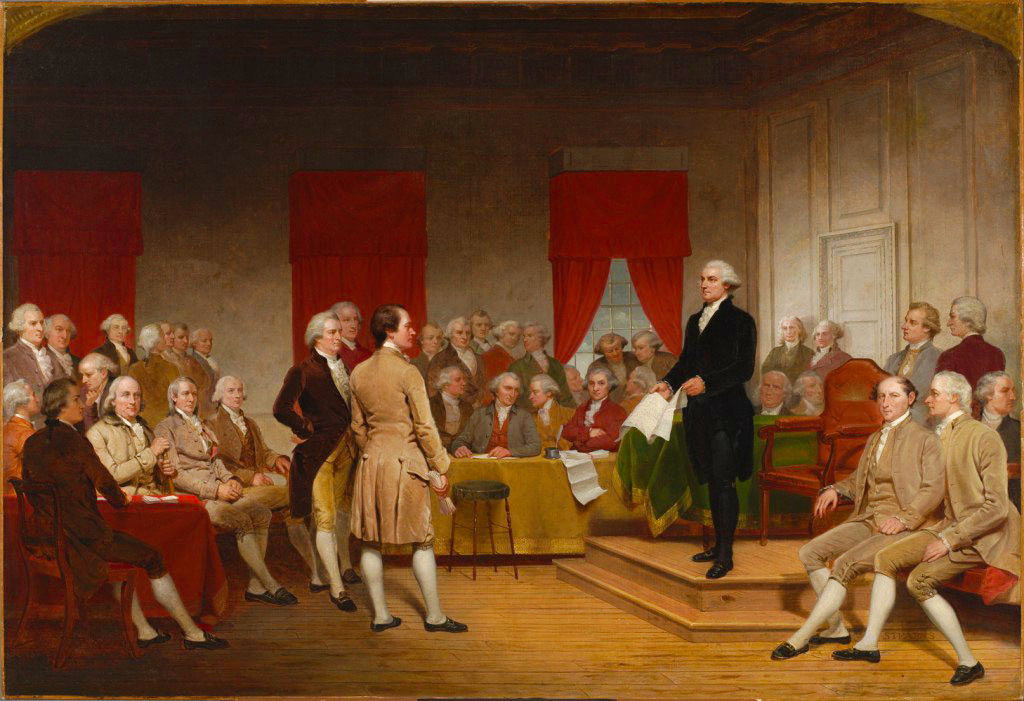Why Is the Constitution a Central Idea in American History?

Strong 8k brings an ultra-HD IPTV experience to your living room and your pocket.
The Constitution of the United States stands as one of the most influential and enduring documents in central American history. Crafted in 1787 and ratified in 1788, the Constitution not only established the framework for the federal government but also embedded fundamental principles that continue to guide the nation. We uncover a multifaceted answer rooted in democracy, liberty, checks and balances, and national identity. Its influence shapes political decisions, civil rights, and American ideals to this day. In exploring this question, we begin to see that the Constitution is more than a historical document; it is a living guide. Through amendments, court interpretations, and civic engagement, the Constitution continues to evolve, ensuring its place as a cornerstone of American history.
Founding Framework of American Democracy
At the heart of the Constitution is the blueprint for a democratic government. Before its creation, the United States operated under the Articles of Confederation, a weak system that left the national government with little authority.
The Constitution changed that by establishing three branches of government legislative, executive, and judicia and by balancing power among them.The Constitution’s system of checks and balances ensures that no branch can dominate the others. This balance reflects a central idea in American history: the avoidance of tyranny and the promotion of freedom through structured governance.
Constitution and American Identity
One of the key reasons the Constitution remains a central idea in American history is its role in defining what it means to be American. The document articulates shared national values such as freedom of speech, equality before the law, and due process that transcend political differences and cultural diversity. These values are enshrined in the Constitution's Preamble, which begins with the iconic phrase, We the People. This simple yet powerful line establishes that the authority of government derives from the citizens it governs, not from kings or elites. In this way, the Constitution serves as a symbol of the people’s collective identity.
Constitution and Civil Rights Movements
Another reason the Constitution remains central in American history is its role in the ongoing struggle for civil rights. While the original Constitution did not abolish slavery or grant women the right to vote, it laid the groundwork for future change. Through constitutional amendments and Supreme Court rulings, the document has been a powerful tool for expanding justice and equality. The 13th, 14th, and 15th Amendments were critical in ending slavery and granting citizenship and voting rights to former slaves.
Living Nature of the Constitution
One of the key aspects that make the Constitution a central idea in American history is its ability to evolve through the amendment process. The Founding Fathers recognized that future generations would need to adapt the Constitution to meet new circumstances. That’s why they included Article V, which outlines the process for making amendments. Over the years, 27 amendments have been added, reflecting significant societal shifts. From the abolition of slavery to the right of 18-year-olds to vote, these changes demonstrate how the Constitution remains dynamic.
Constitution in Education and Civic Life
Another reason the Constitution is a central idea in American history is its consistent presence in education and public life. From middle school civics classes to Supreme Court confirmation hearings, the Constitution is a regular point of reference. Students are taught about the First Amendment, the separation of powers, and the significance of landmark cases like Brown v. Board of Education and Roe v. Wade.
Judicial Review and the Constitution’s Interpretive Role
The Constitution’s enduring significance also lies in its interpretive role, particularly through the power of judicial review. Since Marbury v. Madison in 1803, the Supreme Court has had the authority to interpret the Constitution and decide the constitutionality of laws. This function has kept the Constitution at the heart of American law and policy. Major rulings such as Miranda v. Arizona, Obergefell v. Hodges, and Citizens United v. FEC have interpreted constitutional principles in ways that deeply affect American life.In doing so, the judiciary continues to ensure that the Constitution remains not only a historical artifact but a living force shaping modern governance and societal values.
Conclusion
Because it provides the enduring framework for democracy, establishes shared values, enables progress through amendments, supports civil rights, and adapts to modern challenges. It is the backbone of American law and the soul of American identity. The Constitution has been tested by wars, social movements, political divisions, and cultural changes and it continues to serve as the foundation for liberty and justice. As we look toward the future, the Constitution remains a guiding force, proof that the ideas born in 1787 are still alive in the hearts and minds of Americans.
FAQs
Why is the Constitution important to American history?
The Constitution is important to American history because it established the framework for the U.S. government and protected individual liberties. It set the foundation for democracy, separation of powers, and the rule of law, making it a cornerstone of American identity and governance.
What is the main idea of the Constitution?
The main idea of the Constitution is to create a government that balances power among branches, protects citizens' rights, and ensures justice, liberty, and general welfare for all. It outlines how the government should operate and limits its powers through checks and balances.
How was the Constitution a turning point in history?
The Constitution marked a turning point in history by replacing the weak Articles of Confederation with a strong federal government. It introduced a new form of democratic governance that influenced political systems around the world and strengthened the unity of the original 13 states.
What is the main purpose of a Constitution?
The main purpose of a constitution is to define the structure of government, distribute power, and safeguard the rights of citizens. In the case of the U.S., it also ensures that the government remains accountable to the people through democratic principles.
How did the U.S. Constitution change the world?
The U.S. Constitution changed the world by becoming a model for constitutional democracies worldwide. It introduced revolutionary ideas like separation of powers, federalism, and individual rights, inspiring other nations to adopt similar frameworks for freedom and governance.
Note: IndiBlogHub features both user-submitted and editorial content. We do not verify third-party contributions. Read our Disclaimer and Privacy Policyfor details.







